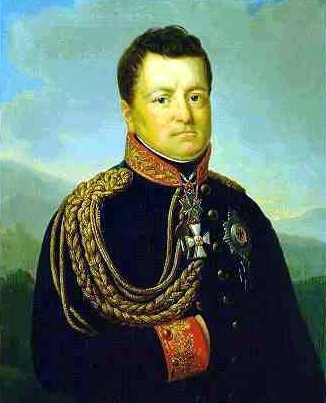The directory «Plots of stamps in the catalogue»
Gneisenau Augustus von
(1760—1831)

Born into a Saxon military family, Augustus Gneisenau first served with the Austrians before joining the British for their efforts to hold on to America. In 1786, he was commissioned by the Prussians and then began serious study of military matters. Gneisenau was at Jena and then made his reputation in 1806 with a fine defence of Colberg against Napoleon Bonaparte's troops. Between 1807 and 1813, Gneisenau helped introduce sweeping reforms to the Prussian army and the setting up of a general staff. During the War of German Liberation in 1813, Gneisenau joined Field Marshal Blucher as his deputy and their blend of skills was almost unbeatable. Gneisenau was the strategic brains, while Blucher was the battlefield expert. During the 100 Days' Campaign, Gneisenau's distrust of the British came to the fore and after the defeat at Ligny was all for abandonning the Duke of Wellington and his army and retreating towards Prussia. Overruled by Blucher, Gneisenau ordered the Prussian army to Waterloo, but clever staff work ensured a slow march that would give it time to withdraw in safety if Bonaparte had already defeated the British and Allied forces. Following 1815, Gneisenau continued to hold high military office and led an army to quell a revolt in Poland in 1831. He died of cholera at Posen.
DDR, 1960, General von Gneisenau
DDR, 1960, General von Gneisenau
DDR, 1963, Generals von Gneisenau and von Blucher
German Federal Republic, 2010,  Graz fon Gneisenau
Graz fon Gneisenau
German Federal Republic, 2010,  250th Birth Anniv of Gneisenau
250th Birth Anniv of Gneisenau